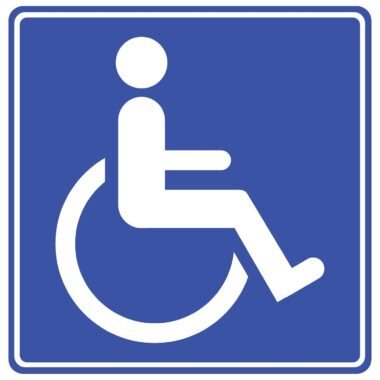Understanding the Importance of Classification
The classification systems in Paralympic sports hold immense significance as they ensure fair competition among athletes with different disabilities. Without these systems, the integrity of the sports could be compromised, leading to unfair advantages or disadvantages among participants. Classifying athletes based on various factors, such as the type and severity of their disability, helps create a level playing field. This is essential for maintaining the spirit of fair play, which is at the core of all sports, including the Paralympics. However, developing and refining these classification systems raises numerous ethical issues. For instance, the processes utilized to determine classifications must be transparent and equitable. Athletes should feel confident that their classification reflects their true capabilities and does not stem from arbitrary decisions or biases surrounding disability. The classification process also needs ongoing revision to adapt to advancements in medical science and understanding of disabilities. Therefore, stakeholders, including sports organizations, coaches, and athletes themselves, must engage in dialogue to ensure that classification systems are justifiable, fair, and continually evolving to meet the needs of diverse athletes.
Another critical aspect of ethical considerations in classification systems is the methodology used to classify Paralympic athletes. The current approaches often rely on medical assessments that can vary significantly, potentially leading to inconsistencies in how athletes are classified. This inconsistency can raise questions about the legitimacy of the classification system itself. For example, some classifications may privilege certain disability types over others, potentially skewing competitive balance. Additionally, the assessments made during the classification process need to respect the athletes’ dignity and autonomy. Athletes should be actively involved in this process to the maximum extent possible, empowering them and ensuring that they fully understand how their classifications are determined. Moreover, privacy concerns arise when personal medical information is required for classification; thus, ethical management of sensitive data must be prioritized. This includes maintaining confidentiality and ensuring that athletes’ information is only accessible to those directly involved in the classification process. Therefore, the ethical implications surrounding these methodologies are critical and must be considered alongside the practical aspects of classification to enhance fairness in Paralympic sports.
The Role of Stakeholders
Different stakeholders play a pivotal role in the ethical considerations involved in classification systems for Paralympic athletes. These stakeholders include sports organizations, governing bodies, medical practitioners, and the athletes themselves. Each group holds distinct responsibilities that can impact the classification process directly or indirectly. Sports organizations are tasked with creating and implementing these systems in a manner that prioritizes fairness and inclusivity. They must ensure that the guidelines for classification are clear, publicly accessible, and ideally, developed with input from various stakeholders. Medical professionals also have a significant responsibility to provide accurate assessments using the best available science while being sensitive to the athletes’ experiences. Meanwhile, athletes should actively participate in the discussions surrounding classification policies, allowing them to advocate for themselves and their peers. Such participatory approaches foster greater trust in the system. Ultimately, the collaboration among these stakeholders is crucial to create an ethical classification framework that respects all athletes’ rights, ensuring they compete fairly while receiving the recognition they rightly deserve for their skills and strengths.
Moreover, one pressing ethical issue within classification systems is the potential for discrimination against certain disabilities. While classifications aim to create equity, there’s a risk that they may unintentionally perpetuate biases built on societal perceptions of disabilities. For instance, some systems may undervalue athletes with disabilities that are perceived as less severe, resulting in discrimination in competition. This is compounded by the reality that many athletes undergo continuous change and adaptation as they train and compete, potentially affecting their classifications over time. Hence, it’s essential to adopt fluidity in the classification systems to account for these changes while safeguarding against unfair advantage. Regular review points should be embedded within the classification framework, allowing for periodic adjustments based on athletes’ evolving abilities. This approach acknowledges that athletes are unique individuals whose capabilities can fluctuate, ensuring their classification truly reflects their current abilities. Discussions on these ethical implications are vital to promote a classification system that genuinely serves the spirit of sportsmanship and fair play in Paralympic competitions.
The Future of Classification in Paralympic Sports
Looking toward the future, evolving technologies could significantly influence how classification systems are developed and applied in Paralympic sports. Advancements in data-gathering technologies, such as wearable devices and biometric data analytics, can provide comprehensive insights into athletes’ performance capabilities. This information could enhance the accuracy and fairness of classifications. Moreover, utilizing artificial intelligence could lead to highly individualized classification systems that consider each athlete’s unique physiological and biomechanical aspects while still adhering to fair competition standards. However, the incorporation of technology into classification systems must be approached cautiously. Ethical concerns surrounding privacy and data ownership arise, necessitating rigorous guidelines that prioritize athletes’ rights. Consent should be a foundational aspect of any technological initiative, ensuring athletes fully understand how their data will be used. Furthermore, appropriate measures should be established to prevent any misuse or exploitation of the data collected during this process. Thus, while the future of classification systems holds promise, it is essential to navigate these ethical complexities diligently to ensure fair competitions in Paralympic sports.
In addition to technological advancements, public perception and awareness of Paralympic sports and ethical issues within classification systems will be instrumental in shaping the future. Increased visibility of Paralympic athletes can contribute to a more profound understanding of various disabilities, presenting a more nuanced perspective that emphasizes resilience and capability. Public discourse around these topics can offer insights into how classification systems are perceived and might prompt necessary reforms for inclusivity and fairness. Furthermore, greater advocacy for athletes’ rights and well-being within these discussions is vital. As athletes share their experiences and concerns regarding classification systems, these testimonies will be central to driving ethical improvements. Engaging the public in discussions about these issues can help foster a culture that values and respects all athletes regardless of their disability. By promoting an ethos that champions fair play, we can work towards creating a Paralympic environment where every athlete feels valued and supported. This holistic approach is critical to achieving fairness and inclusivity in competitive sports for all.
Conclusion: Leading Towards Ethical Practices
In conclusion, ethical considerations surrounding classification systems for Paralympic athletes are multi-faceted and complex. Various stakeholders, technical advancements, and public awareness all play critical roles in shaping these systems to prioritize fairness. By acknowledging the ethical implications and working collaboratively, we can develop classification systems that truly embody the principles of integrity, respect, and inclusion. Continuous dialogue and advocacy efforts must remain at the forefront to address potential issues such as discrimination and lack of transparency. Ensuring that classification processes involve athletes’ voices strengthens the overall framework. Future technological developments offer exceptional opportunities for improving accuracy in classifications, but ethical concerns regarding data privacy must be rigorously addressed. Additionally, fostering public awareness and advocacy remains essential to reforming perceptions of disability in sports, paving the way for an inclusive future. Ethical practices not only enhance the credibility of Paralympic sports but ultimately contribute to a more just and equitable society. Advocating for ethical classification systems is a vital step toward supporting the inherent dignity and worth of all athletes while celebrating their immense capabilities.
Collectively, these efforts are essential to establish a Paralympic environment where all athletes feel supported and celebrated for their individual strengths. Taking proactive measures to refine classification systems is integral to ensuring fair play in Paralympic sports. As stakeholders engage in meaningful conversations about these issues, we move closer to achieving a balance between competition and equity that honors the spirit of sports.





